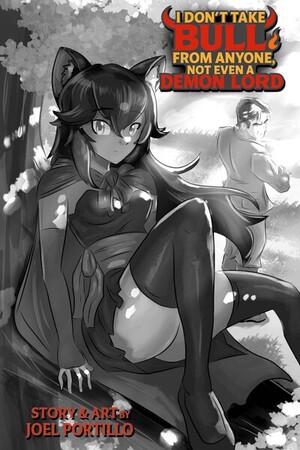Chapter 1:
Of Names and Tears
Twin Souls
Days gave way to the inexorable march of time, and I began to accept a simple fact: something spectacular had occurred. During the first moments of my new life, I was convinced that my mind was amid a death induced hallucination—a so-called ‘deathbed vision.’ Yet, as the first night yielded to the coming dawn, I was forced to reconsider that position. Time dilation in dreams is common, but the level of lucidity I was experiencing was not.
During the halcyon days of my college life, I went through a strenuous period in life. My mother, who had survived my father by more than a decade, passed away from cancer, and seeing my despondent state, my girlfriend ended our relationship. Left to my own devices, truly alone in the world for the first time in my life, I turned towards religion to find answers. I studied theology the semester following my mother’s passing, and I became acquainted with the various concepts of reincarnation.
Hinduism holds that everything with a soul is reincarnated after death—plants, animals, and even humans get more than one chance to fulfill their destinies. Sikhism holds that you may be reincarnated as many times as necessary until you gain an attachment to God, and Buddhism says that the ultimate goal is for the soul to become unattached from the continuous cycle of reincarnation. While none of them offer absolute specifics about how the process works, they all agree that it is a foundational aspect of the human condition. And now I had evidence to suggest that they were correct, albeit a small sample size.
And so, as the first week of my life dragged on, I arranged my thoughts like a precarious house of cards. I sought to build a theologically sound foundation from which I could draw conclusions going forward—put another way, I was attempting to treat my supposed reincarnation in the same manner a doctor would their bank of accrued knowledge. As I constructed that framework, I parsed three points I considered to be salient to my situation. First, I remembered my previous life despite being granted a new body, which meant that some mechanism beyond simple brain chemistry was involved in storing memories. Second, I was born into a different time period than my first life. My third and final observation was that I was somehow unique; there were no known cases of someone being reincarnated with their memories so completely intact.
At least one of the pillars in my foundation would prove to be incorrect, though I would not discover that fact until some time later.
My first month came and went without any fanfare. I had yet to leave the house, being tied at the hip to my mother. Young as she was, she turned out to be every bit the doting and loving new parent. She talked to me constantly in that small voice people use with babies, though she did not simplify the content of her words for my sake. I appreciated that more than she would ever know, because it allowed me to learn the language quickly and without the common misunderstandings most children have.
One of the first things I learned was my own name; or rather, the lack of one. My mother—her name was Resé, which means ‘blossom of the morning sun’ in Tena—explained it to me by way of a bedtime story.
“On the fifth day of the fifth month in the fifth year after Genai created the world, he gave names to all of his creations. He chose to wait to name them, you see, because he wanted them to grow up unencumbered by expectation. Names have power, and they are both a blessing and a burden. And so we also follow that custom, and on the fifth day of the fifth month in the fifth year after you were born, we will take you to the church and choose for you a name that fits your aptitudes and personality.”
Those sorts of lessons were common. She would carry me around the house, tied in a makeshift sling at her side, and speak to me about anything and everything. I was not sure if it was her regular habit to talk to herself, or if she was simply teaching me by osmosis, but by my second month I was fluent enough in Tena to understand what she was saying. It seemed that while I possessed the memories of my previous life, my brain was as plastic as a young baby’s—in other words, I had the unique opportunity to pair my knowledge of dedicated mnemonics and studying with the absorbent brain of an infant. That was when I gave my parents their first major surprise.
“Mama,” I squeaked, and grabbed her braid with a clumsy hand. She peered down at me, her eyes growing wide. Tears formed at the edges of her eyes, and she sucked in a breath. “Mama, where Papa?”
I knew that my sentence was not complete. I had yet to grasp everything about the language, but I thought that I was intelligible at least.
My mother cried. I suppose that it makes sense. Her tiny baby, barely old enough to escape the label of newborn, had just said his first word. More than that, I had strung together a sentence, choppy as it was.
“Oh,” was all she said. Her hand slipped, and she dropped the cast iron pan she was holding. It clattered on the rough stone floor, but she paid it no mind. A long second passed into another, and then she walked to the table, and slumped into a chair.
“What wrong, mama?” I asked. My voice was garbled because I lacked control over my larynx, but it was still understandable.
“Nothing is wrong, baby,” she said through tears. “I knew it, I knew you were special. You were always watching, always observing everything around you. I walked around speaking to you, and it always felt like you were listening.”
I could not think of a reasonable reply, mostly because I lacked the vocabulary to string together such complex ideas, so instead I just tugged on her braid and smiled. “Mama no cry,” I said.
Sitting there in my mother’s arms, watching her cry over how quickly I had learned to speak, I realized for the first time how strong she was. Despite losing a child during labor, she had soldiered on—she sacrificed so much for my sake, and never shed tears of despair.
My mother wiped her eyes and stood. She seemed to be debating with herself, then picked up the pan and started to clean it with a rag. “I still need to cook dinner,” she said. “What would you like? Oh, look at me, asking my two month old what he would like for dinner—of course I know you want the tit.” She laughed at her own joke, then set the pan over the fire and began putting ingredients into it for dinner.
Over the next year, my language improved at a dramatic pace, until I was speaking fully fluent sentences. I found myself conversing with my mother as I tottered behind her, watching her take care of the house. My body was still not entirely my own, and I tripped over my own feet often enough that my knees and hands were constantly covered in scabs and scrapes.
My father was less enamored with me than my mother was. He took the death of my twin sister much harder—or rather, he coped with it worse. I could not say if he was a heavy drinker before I was born, but he was now. He spent everyday from dawn until dusk working in the fields, and then wasted all the money he earned at the local tavern, drinking himself into oblivion. My mother never made a fuss about it, she must have known that he was in the throes of a deep and unassailable depression, but she still worried over their dwindling savings.
The woman who had helped my mother give birth was my grandmother on my father’s side, and also our village midwife. She had seen many miscarriages and stillborns in her life, but she took my sister’s death poorly as well. She was not as distraught as my father, and she did help cover some of the lost income from my father’s drunkenness, but when she looked at me there was always a mix of sadness and hope in her eyes. Then she would whisper something like “at least the boy child survived,” in a voice she thought I could not hear.
Everyone acted like my grandmother was ancient, but judging by her appearance I guessed she was no older than fifty. In a time period without proper nutrition and sanitation, I supposed that people must die young from disease or infection. With that thought in mind, I was always patient and kind with her when she tried to impart the wisdom of age upon me, something she had started doing almost the moment she learned I could understand her.
“Work hard today, so that you may rest hard tomorrow,” she would say. Or, “any job worth doing is worth doing right the first time.” These were all similar to platitudes from my previous life, and things my first father lectured me on hundreds of times when I was a young boy. It struck me while I was listening to one of her gentle lessons that I would have been considered her peer in my previous life. It also occurred to me that I was older than my own parents in this life, in mind if not body. It was an unsettling thought, and for the first time I considered the familial implications behind retaining my memories—I would never enjoy the serene childhood that was a rite of passage for most children. I resolved myself at that moment to never hold my parents’ actions against them, nor would I defy them unless absolutely necessary; they were young, and trying their best to provide a life for me. I wished, not for the first time, that I had obtained that level of clarity in my previous life, before my parents were ripped away from me. The pangs of regret and nostalgia I got every time I thought about my first parents had grown dimmer as I settled into my new family, but they never disappeared entirely.




Please sign in to leave a comment.